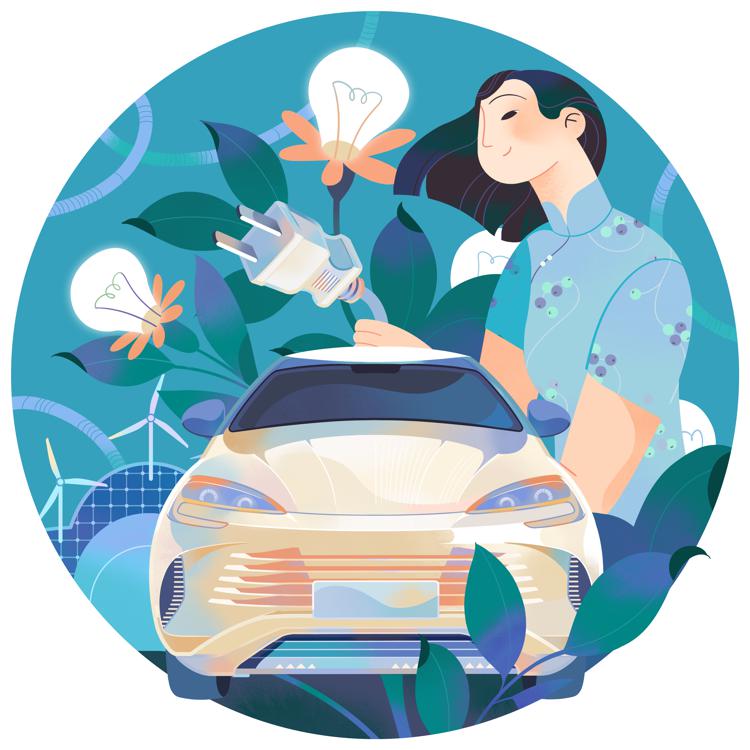Innovation from Achilles' heel to Pegasus


The top Chinese leader has been reiterating the importance of innovation in development and has now highlighted the key role of new quality productive forces in facilitating high-quality development. Although in the past, the relatively slow progress of science and technology in China almost became Achilles' heel for development, the country today has made remarkable achievements in almost every science and technology field.
In 2021, China became the leading country in filing applications for new patents. According to the World Intellectual Property Organization, China's intellectual property office received 1.59 million patent applications (out of a total of 3.4 million filed worldwide in 2021). It was followed by the US, Japanese, Republic of Korea and European patent offices. China led the field in 2022 and 2023, too.
China was ranked 12th in the 2023 Global Innovation Index, becoming the only middle-income country to break into the top 15. Needless to say, it ranked No 1 among middle-income economies. Also in 2023, for the first time China topped the list of countries with the highest number of science and technology clusters, having 24 in total. The United States and Germany followed with 21 and nine clusters respectively.
China is now a leader in many cutting-edge technologies such as big data, artificial intelligence, financial technology, 5G, as well as electric vehicles, robots and drones. It is also one of the world's largest investors in and users of digital technologies. With a strong venture capital industry focusing on fostering advanced digital technologies and innovations, China is home to one-third of the world's unicorns (start-ups with a value of over $1 billion).
As such, innovation is no longer the "Achilles' heel" of the economy; instead, it has become Pegasus and is carrying China toward modernization.
How does that help the world?
China's unique economic philosophy of win-win cooperation, the opposite of the West's zero-sum game in which "the winner takes all", is based on sharing the fruits of its modernization and innovations with other countries. As the global leader in railways, port, bridge and tunnel construction technology, China has been sharing it with Belt and Road partner countries. This shows the mutually beneficial nature of the Belt and Road Initiative which has enabled China to build some of the best infrastructure in the developing world — the first high-speed railway in Indonesia, the China-Laos high-speed railway, the Lekki deep seaport in Nigeria and the magnificent Peljesac Bridge in Croatia, to name but a few.
By developing clean technologies, Chinese companies are helping many countries, including European Union member states and non-Belt and Road countries, to transition to green development. A large percentage of the electric vehicles, wind turbines, solar photovoltaic panels, and critical minerals used in clean technology and digital industries in the US and the EU are imported from China, which has become the global leader in this field.
China, which also leads in space exploration, is helping many countries place Earth-observing and telecommunications satellites in orbit and has invited all countries to benefit from its space program. Interestingly, a report by the United States Institute of Peace published in September 2023 said Beijing has made support for the development of African countries' space programs a key incentive for the continent to establish closer ties with China. "By contrast", it added "although US federal agencies and universities are actively involved in research partnerships with some African countries, space technology has not been a focus of US foreign policy in Africa."
Speaking at the China-Africa Leaders' Dialogue on Aug 24, 2023, in Johannesburg, the top Chinese leader said China was committed to promoting the modernization of Africa. Accordingly, China launched the "Initiative on Supporting Africa's Industrialization" to boost Africa's manufacturing sector and help the continent realize industrialization and economic diversification, and the "Plan for China Supporting Africa's Agricultural Modernization" to expand the grain growing areas, and encourage Chinese companies to increase investment in Africa's agriculture sector and strengthen cooperation with Africa.
It has also launched the "Plan for China-Africa Cooperation on Talent Development" to train 500 principals and outstanding teachers from vocational colleges every year, and teach 10,000 technicians vocational skills, and implemented the "China-Africa Universities 100 Cooperation Plan" and the 10 pilot exchange programs for China-Africa partner institutes.
But these cooperation initiatives are not charities or aid programs; they are initiatives to promote mutual and equitable growth. It's time the world embraced China's development philosophy, for it benefits all and helps advance civilization with innovation as its guiding principle.
The author is vice-chairman of the Belt and Road Institute in Sweden and a distinguished research fellow at the Guangdong Institute of International Strategies. The views don't necessarily reflect those of China Daily.
If you have a specific expertise, or would like to share your thought about our stories, then send us your writings at opinion@chinadaily.com.cn, and comment@chinadaily.com.cn.
































